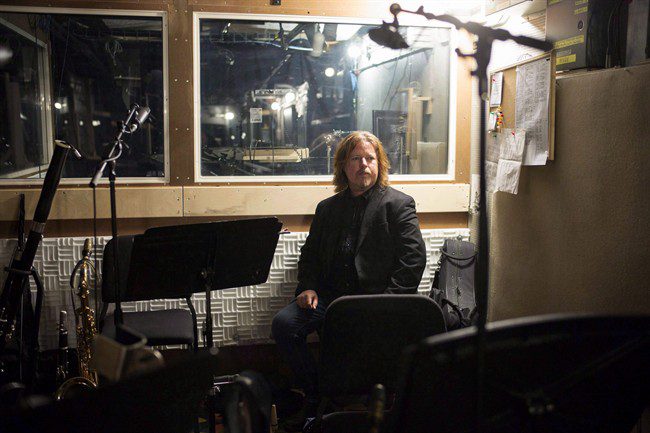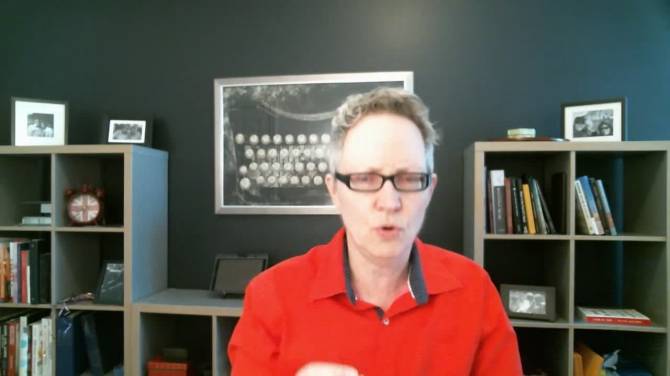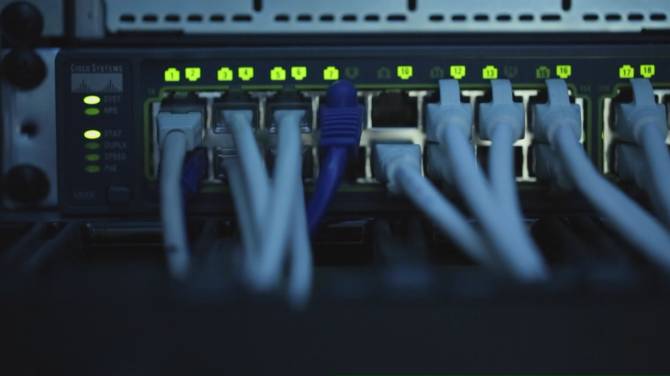The production is smooth, the drums are precise, and the vocals sound excellent, but a key figure in Newfoundland and Labrador’s music scene detects something wrong with “It Could Be Worse” and “Tales of The Atlantic,” two songs quickly produced by a powerful algorithm.
“It’s a country singer, so that’s incorrect. And the lyrics don’t really rhyme,” said Bob Hallett, a founding member of Newfoundland folk-rock band Great Big Sea. “It just sounds sort of strange.”
Hallett had just finished listening to the rollicking tunes, which were created using a generative artificial intelligence tool called Suno using prompts that could describe any Great Big Sea jam: Celtic, folk, lively, passionate.
They didn’t hit the mark, Hallett said. On a scale of one to 10, with 10 being the band’s hit “Ordinary Day,” he gave the songs a two.
But experts say that rating could increase quickly. Technology like Suno’s is advancing swiftly, and its output is only getting better, said Jimmy Lin, a professor and director at the University of Waterloo’s artificial intelligence institute.
Suno is one of several companies building generative artificial intelligence software that allows users to create original songs using text prompts. People can create instrumental tracks or songs with lyrics, which can be generated by the program or supplied by the user. But if the user offers copyrighted lyrics — the first lines of Nirvana’s “Smells Like Teen Spirit,” for example — the program won’t make the song.
Suno also doesn’t make songs intended to sound like other artists’ work, such as “Heart on My Sleeve,” the AI-generated song using unauthorized sound-alike vocals of Drake and the Weeknd which caused controversy in the music industry last year. When asked to make “a Great Big Sea song about cod fishing,” the resulting Suno tunes had a pensive, Celtic flair, but they sounded nothing like an authentic track by the band.
Google is working on similar software, called MusicFX, which can be sampled through its AI Test Kitchen site. And Adobe unveiled Project Music GenAI Control last month, which it described as an “early-stage generative AI music generation and editing tool.”
In December, Microsoft introduced a Suno-powered song generator for its Copilot chatbot, which is a program that uses artificial intelligence to simulate conversation with users.
The technology behind these programs is similar to that powering the ChatGPT chatbot.
Lin said such programs use massive data sets to “train” algorithms, or step-by-step processes, to take any starting point and predict what the next one will be. So while chatbots trained with text can predict the next word in a written answer, a music-generating program is trained using sound to predict the next “acoustic sequence,” he said.
The New York Times sued Microsoft and ChatGPT owner OpenAI in December for using its stories to train programs.
Lin said companies behind AI platforms that make music could find themselves in similar trouble if they’ve trained their algorithms with work by artists who haven’t given consent or received compensation for their music to be used that way.
In an interview, he said that it's still not clear whether this is considered fair use or not. He believes that the court will ultimately resolve this issue.
The website of Suno does not show what information it used to create its program, and the company did not respond to a request for comment.
Hallett mentioned that he wouldn't be surprised if the algorithms learned from a few Newfoundland bands. He observed that the songs it created had some specific musical characteristics, such as precise melodies and intense strumming on acoustic guitars, that he and other producers have developed over the years while recording albums for bands like the Ennis Sisters, Shanneyganock, and The Fables.
However, he was not worried about the music being used to train these programs. He noted that artists have been dealing with platforms like YouTube and Spotify, which have already significantly impacted musicians' earnings.
Hallett expressed a sense of resignation about the situation, stating that it's very difficult to control it. He pointed out that the essence of creative work now lies in boosting concert sales or securing commercial placements. Even at the highest levels, people are not really making money by selling records anymore.
Lin suggested that AI-generated songs may be utilized by advertisers who need an appealing tune for a commercial. He anticipates that this could happen soon due to the rapid evolution of these tools.
Lin stated that it's not a matter of years or decades, but rather months, before this will occur.
However, Hallett emphasized that individuals seeking to connect with an audience through music would be better off with human beings.
He expressed that it's easy to fear AI but people are naturally drawn to authenticity in music. He emphasized the desire to hear musicians who are sharing genuine stories and emotions, something that computers cannot achieve.





